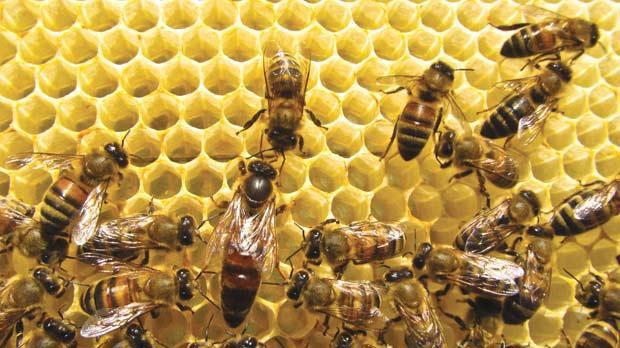A constant growth in the number of Oriental Hornets, an alien insect species found around the country, is posing an increasingly bigger threat to Malta's bee population, according to Mario Sant, a committee member of the Malta Beekepers Association.
Speaking to The Malta Independent, Sant explained that as time goes by, the population of the red insect with a distinct yellow line is growing, and consequently posing more of a threat onto Malta's bee population, and agriculture in general, since much agriculture depends on pollination. The alien insect, which, when provoked produces a more painful sting than the regular bee, also creates a cause for concern when their nests are present amongst people.
Sant said that because the population of hornets has grown significantly; bees are refusing to leave their hives out of fear. "I have heard from many beekeepers that bees are scared to merely leave their hives and get on with their routine of pollination because of the presence of hornets."
He went on to explain the "feast" the intruders are having with Maltese honey bees said. "They approach the bees' apiary as a pair of hornets, called 'scouts', and then they go back to their hive to tell the colony the directions towards the apiary, then you see them coming as a whole, to eat the bees and hives."
"If the bee population decreases, then pollination decreases and between 75 and 85 per cent of the food we eat is produced thanks to pollination from bees," he said. "If there are no bees, we will have no fruit or vegetables or flowers."
Keeping in mind that the reduction of bees means a decrease in the production of honey, another source informed this newspaper that of late he has been unable to purchase honey from his usual distributor because of an external 'pest' threatening the production, which is the hornet.

How the insect came into the country is unknown, however Sant explains that it has been around for a while. "They have been around for a long time, had decreased a while ago but now their presence has exploded again," he said, "we do not know whether adult hornets were put on our shores or they came in the form of eggs on some plant, however we know that it does not have any enemies, so what is happening is the species are reproducing at a quicker frequency," Sant explained.
Sant informed this newspaper that last week, the headmaster of a school told him that at their school there is a hornet's nest which the children are afraid of, since hornets can attack people when provoked. "If an Oriental Hornet stings you, you need to go to hospital straight away," he informed, adding "the sting of a hornet is much more powerful than the sting of a bee, so the school are fearful of letting the children outside for break."
The bee-enthusiast said that back in March his committee had met up with former Parliamentary Secretary for Agriculture Roderick Galdes and mentioned the various threats to the bee population.
"We had voiced various problems which we come across as beekeepers, and one of them was about hornets, however we felt that since then not enough action has been taken," he said.
"The bee situation is much worse now than it was a year ago, and hornets are one of the big causes," he said. Other threats to the bee population are Varroa mites and importing bees from abroad. The former were also an alien species that began invading Malta since approximately fifty years ago, whilst the latter could be threatening since the foreign bees cannot be kept quarantined in an enclosed area, Sant explained, adding that "it is very difficult to control a swarm of about 20,000 bees."
When asked what could be done by authorities improve the situation, Sant said that a solution is "tricky", "they could either increase traps to catch the hornets, as is done through subsidies for other, similar agricultural situations." "If nothing is done the situation is definitely going to get much worse," he said.
Asked whether there is reason to get scared of coming across a hornet in the street, Sant said to treat it as one would a bee, not to irritate it, so it will not react.
Questions have been sent to Parliamentary Secretary for Agriculture Clint Camilleri regarding the issue.
If one wishes to contact the Malta Beekeeper's Association, they can do so on [email protected].